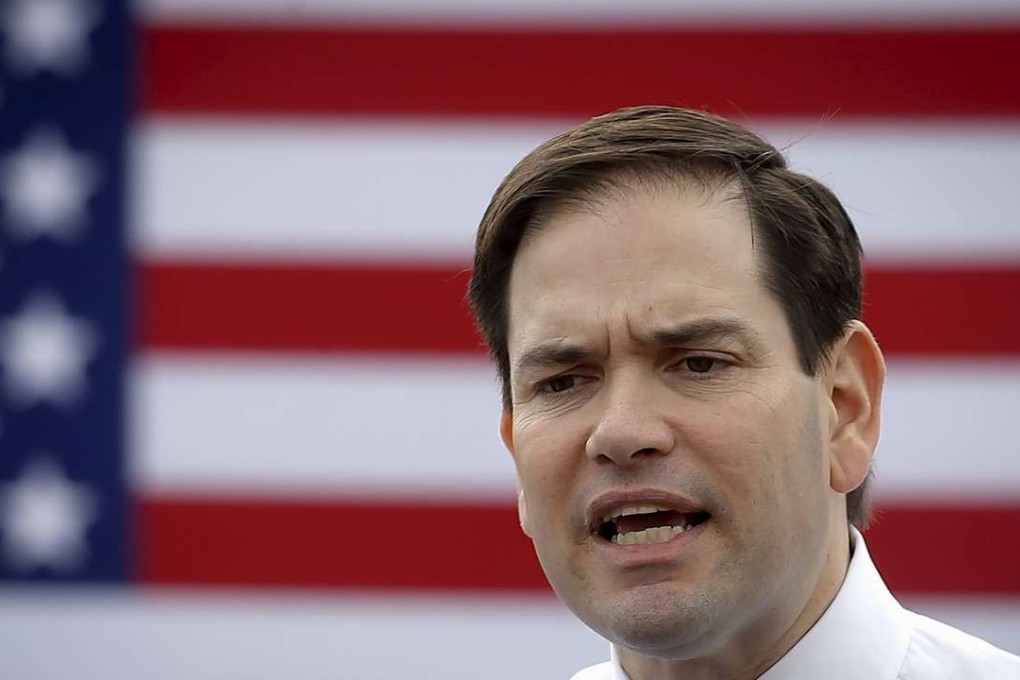United States Congress set to introduce Hong Kong human rights act ‘in coming days’
Bill proposed in wake of disappearances of five Causeway Bay booksellers looks to target officials responsible for suppressing freedoms

The United States Congress looks set to introduce a human rights act on Hong Kong “in the coming days” as Donald Trump takes his anti-China rhetoric to the presidency, the Post has learned.
“I look forward to reintroducing the Hong Kong Human Rights and Democracy Act in the coming days,” Marco Rubio, co-chair of the bipartisan Congressional-Executive Commission on China, said in an email through a spokesman on Tuesday. “America must show leadership and support these values in our foreign policy.”
The bill was proposed in the wake of the disappearances of five Causeway Bay booksellers in 2015 who later turned up in the custody of mainland authorities. It proposed punitive measures against any government officials in Hong Kong or the mainland responsible for suppressing basic freedoms in the city.
The law would require the US president to identify persons responsible for the surveillance, abduction, detention or forced confessions of booksellers and journalists in Hong Kong or other actions suppressing basic freedoms, and to freeze their US-based assets and deny them entry into the country.

Trump’s ascension to the presidency has raised hopes among democracy activists in Hong Kong that the US will take a harder line against China on the city’s democratic development.